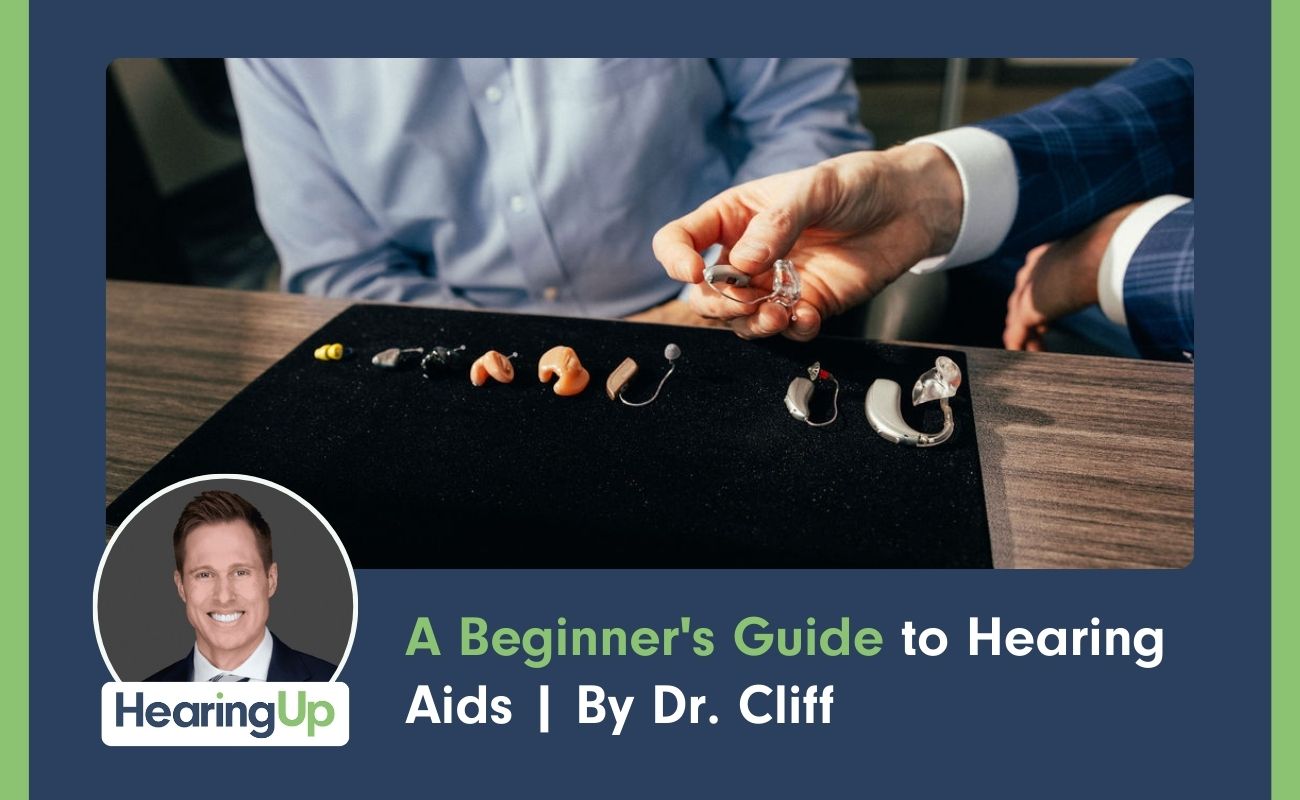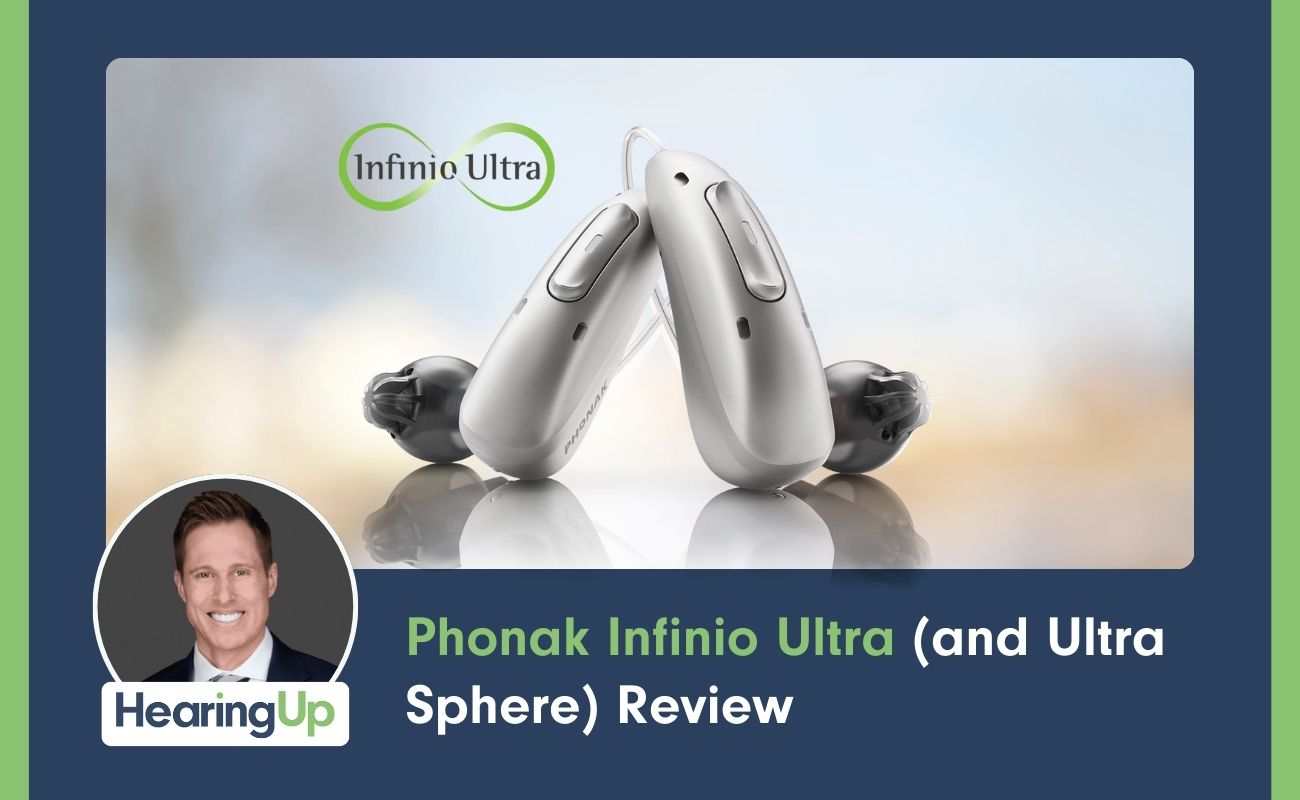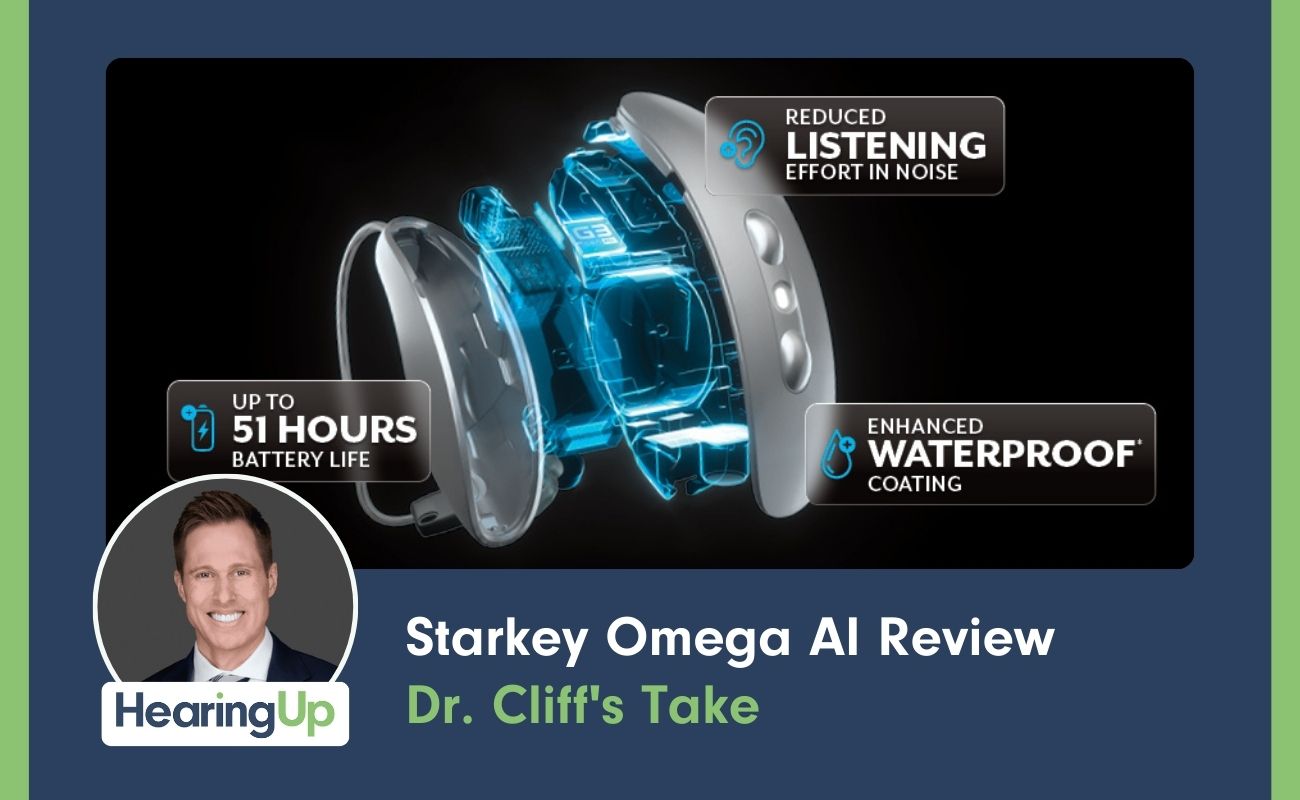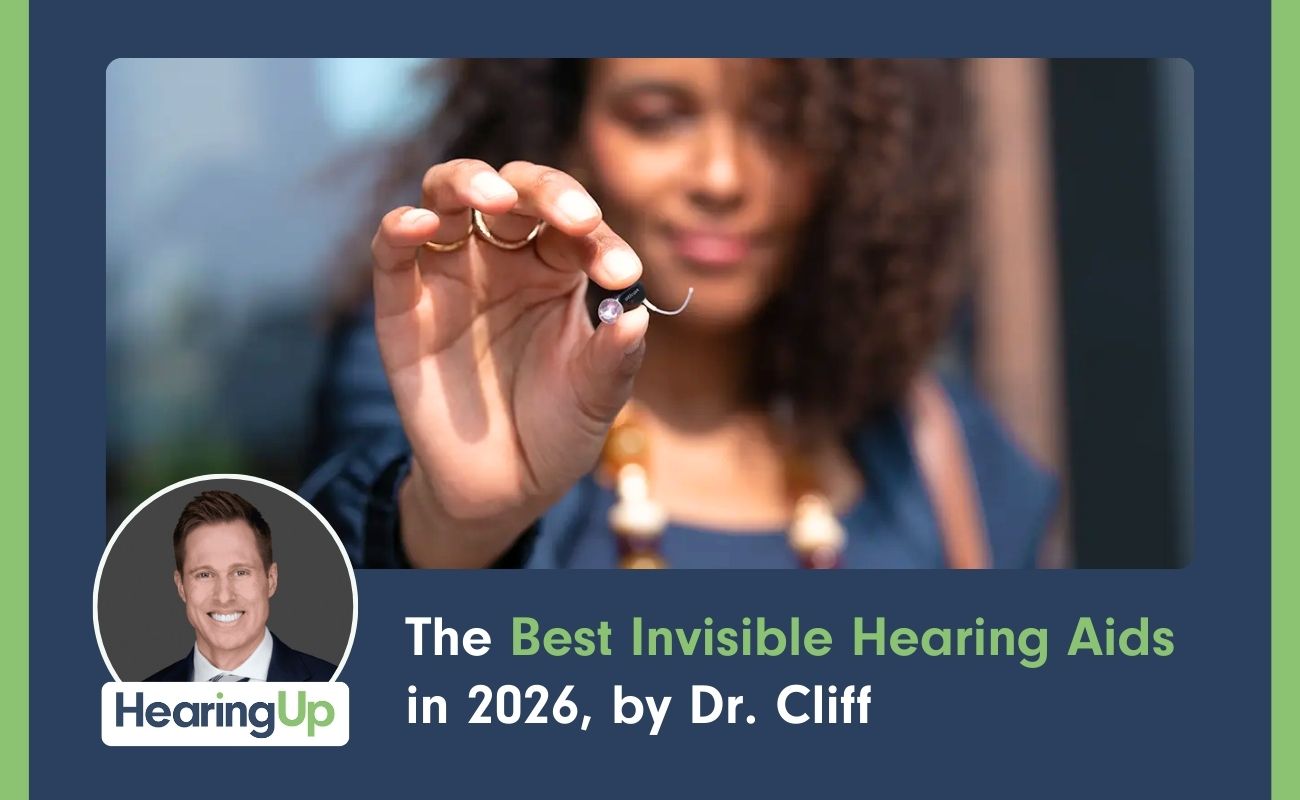Hi guys, Cliff Olson, Doctor of Audiology and founder of Applied Hearing Solutions in Phoenix, Arizona. And in this video, I'm talking about the five biggest scams in the hearing aid industry coming up!
Some of my favorite TV shows are documentaries about con artists and how they can deceive everyday people out of millions of dollars before they're eventually caught. I don't like these shows because people are getting scammed. I like these shows because in almost every single case, the individual doing this scam gets brought to justice. Unfortunately, a lot of the individuals who get scammed by these con artists do not even realize that they're being scammed until it's too late. And they've lost a bunch of money as it turns out. Every single industry in the entire world has its scams. And the hearing aid industry is no exception as an audiologist. I feel like it is my responsibility to warn you about some of the common hearing aid scams inside of the hearing aid industry. And while this might shine a negative light on my entire profession, I feel like it is in your best interest and the best interest of individuals with hearing loss to at least make you aware of them.
Now I've already posted multiple videos talking about deceptive marketing tactics and what I believe to be illegitimate hearing aid companies. But in this video, I wanna focus on more of the common scams that you'll see inside of the hearing aid industry. So you don't get caught up in these scams yourself, but before I do, if you could do me a huge favor and click the like button that really helps out my channel because it gets these videos in front of a broader audience. And while you're at it, if you have not yet hit that subscribe button with notification bell, go ahead and do that as well, because that ensures that you never miss one of my newly released videos. That being said, I really appreciate it. Now let's get into the first scam, which is making false claims about hearing aid performance. Have you ever conducted a hearing aid search online or opened up the newspaper to find this amazing hearing aid for only a couple hundred bucks, naturally one would expect these lower cost hearing aids to be relatively basic compared to prescriptive level hearing aids that you would find inside of a hearing aid clinic.
Yet all the claims surrounding these devices is that they are as good or better than name brand hearing aids. And you can get them for thousands of dollars less. They even use flashy terms like medical grade technology and world leading speech clarity. And since most individuals believe that it would be illegal to say these things, if they weren't true, a lot of people actually believe them. They often justify the low cost based on the fact that you just order these devices direct online. So you can bypass the hearing care professional who would fit and program these devices to your hearing loss prescription. But what they don't tell you is that they order these amplifiers in bulk from China for a few bucks a piece, and then they apply a few thousand percent markup when they sell them to you. That's right. These are not even hearing aids.
They're just amplifiers that amplify all sounds regardless of the severity or configuration of your hearing loss. Unless these companies can actually cite research data from reputable sources. You should never trust claims of these low cost devices, outperforming legitimate hearing aids. The second biggest scam in the hearing aid industry is online articles that promote hearing aids. I was recently contacted for an interview for an article for a media company that many of you would find to be extremely credible. Who's been building the reputation for the past a hundred years or more after only a few minutes. Speaking with this freelance writer who had no understanding about hearing loss or different treatment options. I quickly realized that they only wanted me in this article to give it credibility so they could actually sell hearing aids from this article that I didn't believe in. I know this because she openly admitted that the goal of the article was to highlight a particular brand of hearing aid, regardless of what I said about it.
Once I realized this, I elected to terminate the interview, even though having my name in this particular publication, would've been great from a publicity standpoint for myself. Unfortunately, pretty much every article that you read about online that ranks different hearing aids is just an advertisement that is disguised as a legitimate piece of editorial content. Now, I am fully aware that I myself have sponsored videos on my YouTube channel. The big difference is, is that I disclose this sponsorship inside of each one of these videos in accordance with FCC regulations. On top of that, I actually have background understanding about hearing loss and treatment options. Most of the journalists that write these online articles have absolutely no understanding about hearing loss in hearing aids. And they find some, a U D who's willing to basically sell their name in order to get publicity, to be attached to these articles, to sell these crappy hearing aids.
The third biggest scam in the hearing aid industry is fake online reviews. Have you ever visited a hearing aid website and every single review on the website is a five star review, but then you go on to some public forums or other public websites, and you find out that they have a lot of one star reviews. Well, this would shock me typically, but it's quite obvious that every single one of these reviews is just fake. As much as I hate the better business bureau, you can actually go to their website and see some more legitimate reviews of these particular companies products on their website. But after I've seen what these online companies do with their reviews, I don't trust reviews for anything anymore. The fourth biggest scam that I see inside of the hearing aid industry is not issuing refunds for hearing aids. When you send them back inside of your return period, there are two reasons why online hearing aid companies continue to stay in business.
And one of those reasons is not that they have amazing technology. They have an extremely high markup on these basic amplifiers. Like I mentioned before, when they can buy one of these amplifiers for a few bucks and then sell it for a few hundred or even a thousand dollars, that is a massive markup. The second reason is they will do everything in their power to not issue you a refund. If you actually send your hearing devices back to them inside of your return period, most people are rightfully skeptical about purchasing, hearing aids online. But a lot of them feel like it's worth the risk because Hey, they're only a couple hundred bucks. And if I don't like them, I can just send them back and get a full refund inside of my 30 to 90 day return period. These companies know that they can get away without issuing refunds because most individuals won't pursue it, or they will just give up trying if necessary.
These hearing aid companies will continue to give you the run around until you get completely discouraged enough to realize that you've been scammed and just accept that you're not getting your money back. This is why I recommend that. If you choose to purchase hearing aids online, you have to be willing to lose all of your money. In case this company doesn't issue you a refund when you send the products back, or if you just never get the products at all. And the fifth and final most common scam inside of the hearing aid industry doesn't have anything to do with online hearing aid companies. It has everything to do with local hearing clinics that do not follow best practices. There are several reasons why hearing aids that you purchase inside of a hearing aid clinic will cost more than what devices do online. The first reason is is that the technology is just substantially better.
So it costs more to acquire. The second reason is, is that they have to cover more overhead costs because of their local clinic inside of your community. And the third reason that hearing aids cost more is because they should be giving you professional services inside of their clinic. You see if you are spending the type of money that it takes to get hearing aids at a local hearing aid clinic, and you are not receiving comprehensive best practices when testing your hearing, selecting your hearing aids, fitting your hearing aids program, your hearing aids, and getting follow up care that in my opinion, you're being scammed. Now, if you do not know what best practices are, they are basically a long list of procedures that are proven by research to result in optimal performance outcomes with hearing aids. I also have a video explaining these best practices that I will link in the description.
If best practices are not being performed, like test box measures and real ear measurement, just to name a few, then you are leaving a significant amount of hearing performance on the table. And when you're spending the kind of money that it takes to purchase hearing aids from a local hearing aid clinic, why wouldn't you want to get those services each year that goes by, I see more and more of these obvious scams that take advantage of individuals just like yourself with hearing loss. And until you stop falling for those scams, they're gonna continue to be a problem. So do yourself a favor the next time that you're considering treating your hearing loss with hearing aids. I want you to consider these five different scams to make sure that you don't get taken advantage of like the many individuals with hearing loss who already have that's it for this video. If you have any questions, leave them in the comment section below. If you like the video, please share it. If you wanna see other videos, just like this one, go ahead and hit that subscribe button. Also feel free to check out my website, drcliffaud.com.
Hi guys, Cliff Olson, Doctor of Audiology and founder of Applied Hearing Solutions in Phoenix, Arizona. And in this video, I'm talking about the five biggest scams in the hearing aid industry coming up!
Some of my favorite TV shows are documentaries about con artists and how they can deceive everyday people out of millions of dollars before they're eventually caught. I don't like these shows because people are getting scammed. I like these shows because in almost every single case, the individual doing this scam gets brought to justice. Unfortunately, a lot of the individuals who get scammed by these con artists do not even realize that they're being scammed until it's too late. And they've lost a bunch of money as it turns out. Every single industry in the entire world has its scams. And the hearing aid industry is no exception as an audiologist. I feel like it is my responsibility to warn you about some of the common hearing aid scams inside of the hearing aid industry. And while this might shine a negative light on my entire profession, I feel like it is in your best interest and the best interest of individuals with hearing loss to at least make you aware of them.
Now I've already posted multiple videos talking about deceptive marketing tactics and what I believe to be illegitimate hearing aid companies. But in this video, I wanna focus on more of the common scams that you'll see inside of the hearing aid industry. So you don't get caught up in these scams yourself, but before I do, if you could do me a huge favor and click the like button that really helps out my channel because it gets these videos in front of a broader audience. And while you're at it, if you have not yet hit that subscribe button with notification bell, go ahead and do that as well, because that ensures that you never miss one of my newly released videos. That being said, I really appreciate it. Now let's get into the first scam, which is making false claims about hearing aid performance. Have you ever conducted a hearing aid search online or opened up the newspaper to find this amazing hearing aid for only a couple hundred bucks, naturally one would expect these lower cost hearing aids to be relatively basic compared to prescriptive level hearing aids that you would find inside of a hearing aid clinic.
Yet all the claims surrounding these devices is that they are as good or better than name brand hearing aids. And you can get them for thousands of dollars less. They even use flashy terms like medical grade technology and world leading speech clarity. And since most individuals believe that it would be illegal to say these things, if they weren't true, a lot of people actually believe them. They often justify the low cost based on the fact that you just order these devices direct online. So you can bypass the hearing care professional who would fit and program these devices to your hearing loss prescription. But what they don't tell you is that they order these amplifiers in bulk from China for a few bucks a piece, and then they apply a few thousand percent markup when they sell them to you. That's right. These are not even hearing aids.
They're just amplifiers that amplify all sounds regardless of the severity or configuration of your hearing loss. Unless these companies can actually cite research data from reputable sources. You should never trust claims of these low cost devices, outperforming legitimate hearing aids. The second biggest scam in the hearing aid industry is online articles that promote hearing aids. I was recently contacted for an interview for an article for a media company that many of you would find to be extremely credible. Who's been building the reputation for the past a hundred years or more after only a few minutes. Speaking with this freelance writer who had no understanding about hearing loss or different treatment options. I quickly realized that they only wanted me in this article to give it credibility so they could actually sell hearing aids from this article that I didn't believe in. I know this because she openly admitted that the goal of the article was to highlight a particular brand of hearing aid, regardless of what I said about it.
Once I realized this, I elected to terminate the interview, even though having my name in this particular publication, would've been great from a publicity standpoint for myself. Unfortunately, pretty much every article that you read about online that ranks different hearing aids is just an advertisement that is disguised as a legitimate piece of editorial content. Now, I am fully aware that I myself have sponsored videos on my YouTube channel. The big difference is, is that I disclose this sponsorship inside of each one of these videos in accordance with FCC regulations. On top of that, I actually have background understanding about hearing loss and treatment options. Most of the journalists that write these online articles have absolutely no understanding about hearing loss in hearing aids. And they find some, a U D who's willing to basically sell their name in order to get publicity, to be attached to these articles, to sell these crappy hearing aids.
The third biggest scam in the hearing aid industry is fake online reviews. Have you ever visited a hearing aid website and every single review on the website is a five star review, but then you go on to some public forums or other public websites, and you find out that they have a lot of one star reviews. Well, this would shock me typically, but it's quite obvious that every single one of these reviews is just fake. As much as I hate the better business bureau, you can actually go to their website and see some more legitimate reviews of these particular companies products on their website. But after I've seen what these online companies do with their reviews, I don't trust reviews for anything anymore. The fourth biggest scam that I see inside of the hearing aid industry is not issuing refunds for hearing aids. When you send them back inside of your return period, there are two reasons why online hearing aid companies continue to stay in business.
And one of those reasons is not that they have amazing technology. They have an extremely high markup on these basic amplifiers. Like I mentioned before, when they can buy one of these amplifiers for a few bucks and then sell it for a few hundred or even a thousand dollars, that is a massive markup. The second reason is they will do everything in their power to not issue you a refund. If you actually send your hearing devices back to them inside of your return period, most people are rightfully skeptical about purchasing, hearing aids online. But a lot of them feel like it's worth the risk because Hey, they're only a couple hundred bucks. And if I don't like them, I can just send them back and get a full refund inside of my 30 to 90 day return period. These companies know that they can get away without issuing refunds because most individuals won't pursue it, or they will just give up trying if necessary.
These hearing aid companies will continue to give you the run around until you get completely discouraged enough to realize that you've been scammed and just accept that you're not getting your money back. This is why I recommend that. If you choose to purchase hearing aids online, you have to be willing to lose all of your money. In case this company doesn't issue you a refund when you send the products back, or if you just never get the products at all. And the fifth and final most common scam inside of the hearing aid industry doesn't have anything to do with online hearing aid companies. It has everything to do with local hearing clinics that do not follow best practices. There are several reasons why hearing aids that you purchase inside of a hearing aid clinic will cost more than what devices do online. The first reason is is that the technology is just substantially better.
So it costs more to acquire. The second reason is, is that they have to cover more overhead costs because of their local clinic inside of your community. And the third reason that hearing aids cost more is because they should be giving you professional services inside of their clinic. You see if you are spending the type of money that it takes to get hearing aids at a local hearing aid clinic, and you are not receiving comprehensive best practices when testing your hearing, selecting your hearing aids, fitting your hearing aids program, your hearing aids, and getting follow up care that in my opinion, you're being scammed. Now, if you do not know what best practices are, they are basically a long list of procedures that are proven by research to result in optimal performance outcomes with hearing aids. I also have a video explaining these best practices that I will link in the description.
If best practices are not being performed, like test box measures and real ear measurement, just to name a few, then you are leaving a significant amount of hearing performance on the table. And when you're spending the kind of money that it takes to purchase hearing aids from a local hearing aid clinic, why wouldn't you want to get those services each year that goes by, I see more and more of these obvious scams that take advantage of individuals just like yourself with hearing loss. And until you stop falling for those scams, they're gonna continue to be a problem. So do yourself a favor the next time that you're considering treating your hearing loss with hearing aids. I want you to consider these five different scams to make sure that you don't get taken advantage of like the many individuals with hearing loss who already have that's it for this video. If you have any questions, leave them in the comment section below. If you like the video, please share it. If you wanna see other videos, just like this one, go ahead and hit that subscribe button. Also feel free to check out my website, drcliffaud.com.

Hearing aid success requires 90-min evaluations, Real Ear Measurement programming, appropriate tech selection, 30-day adaptation and ongoing professional follow-up.
Read More
Phonak Infinio Ultra firmware adds AutoSense OS 7.0 (24% better), 30% improved battery (10hrs with AI), simplified Bluetooth pairing, and faster feedback tests.
Read More
Starkey Omega AI improves on Edge AI with DNN 360 (19.6% better speech clarity), spatial awareness, find-my-hearing-aid lights, and 20x stronger custom shells.
Read More
Top 2026 RIC hearing aids: Phonak Ultra Sphere Infinio (AI noise reduction), Starkey Omega AI, Oticon Intent, Signia IX, Widex SmartRIC.
Read More
Best 2026 invisible aids: Oticon Zeal (AI/Auracast), Phonak Lyric (self-replace), Starkey IIC (minimal), Phonak Titanium (durable), Oticon Own (AI processing).
Read More
Auracast audio, remote care, DNN processing, custom ear molds, and durability tech lead 2026's most impactful hearing aid innovations for better sound and convenience.
Read More